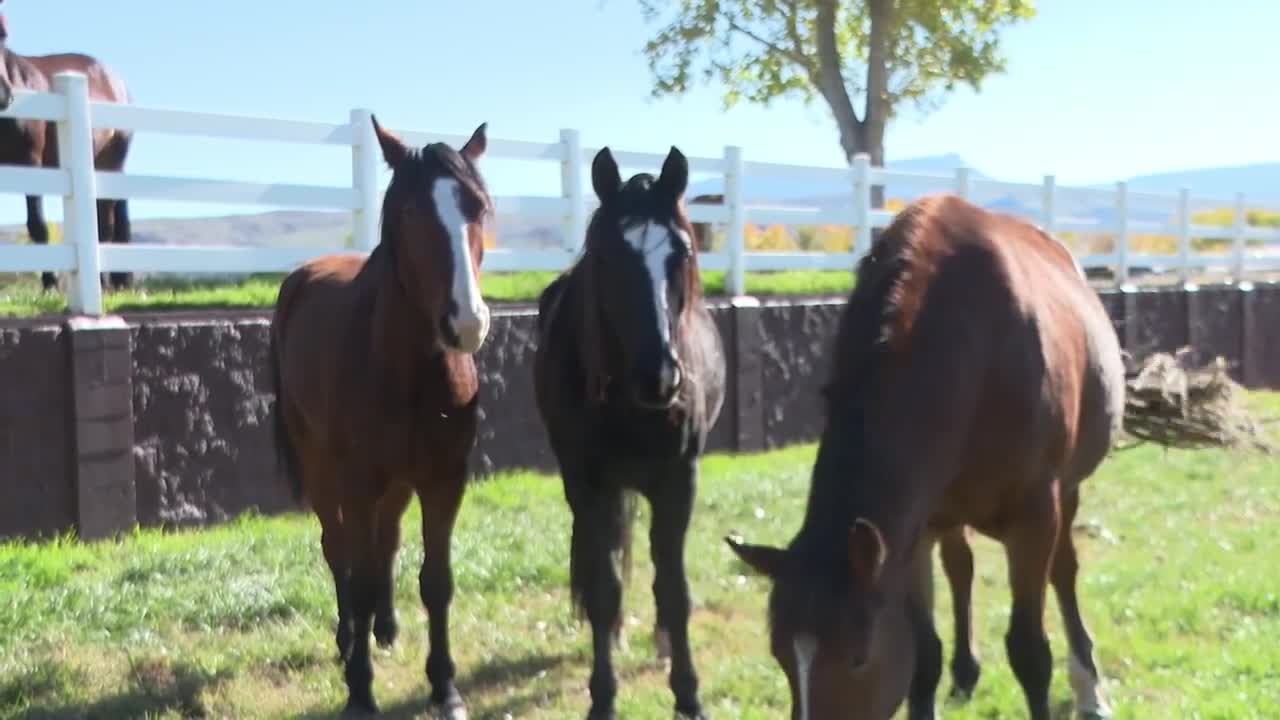TOQUERVILLE, Utah — The current horse virus outbreak affecting the southwest U.S. couldn't have come at a worse time for those who ride, care, and love the animals in Utah.
"The cowboys and the stock contractors worked their entire year to get their animals and their qualification for the [National Finals Rodeo]. They can make more money at the NFR than they do the rest of the year combined," said Cyndi Gilbert, co-owner of the Diamond G Ranch in Toquerville.
Gilbert's concern is the two-week junior and pro National Finals Rodeo starting on Dec. 4, considered to be the Super Bowl of the rodeo circuit. The Cedar City native is still the only woman to have won three gold buckles on the pro rodeo circuit in one year. Her ranch now produces many of the top bucking horses and bulls.
"I would be a nervous wreck if I knew this was out there and I hadn't done everything I could for my horse," she said of the virus.
The highly contagious Equine Herpesvirus Type 1 virus, or EHV-1, was first detected among the 600 stalls at a rodeo event in Waco, Texas. There has been at least one confirmed horse death, according to the U.S. Equestrian Federation, and many more horses have had to be put down.
In Utah, the ongoing scare forced the biggest junior rodeo in the state, the Dixie Six, in Hurricane, to be postponed.
Equestrians, both young and old, have to decide what risk they’re willing to take with the horses they love, said Gilbert, and shared a conversation she had recently with a 16-year-old rider.
"Which is more important? The horse or going to Las Vegas to participate?" Gilbert asked. "And the girl quickly made the decision to keep the horse, and so they're not going."
Washington County Legacy Park, where the Dixie Six rodeo was to take place, is not allowing the overnight housing of horses until at least Dec. 2. This is usually a busy time of year for the park corrals, but it was a ghost town Monday.
"Actually, in all the equestrian world, word travels fast," said Kolbey Hughes, Legacy Park's Equestrian Director. "Our equine athletes come first. And without them, we aren't a facility."
Gilbert sees the current parallels with the COVID-19 pandemic, as she was close to that as the chairman of the board for St. George Regional Hospital. She still has animals going to the pro rodeo, but may change her mind if the virus gets worse.
"I will follow the guidelines and keep our animals safe," she said. "I just can't do anything about somebody else. All you can do is your corner of the world and hope everybody else does the same."




